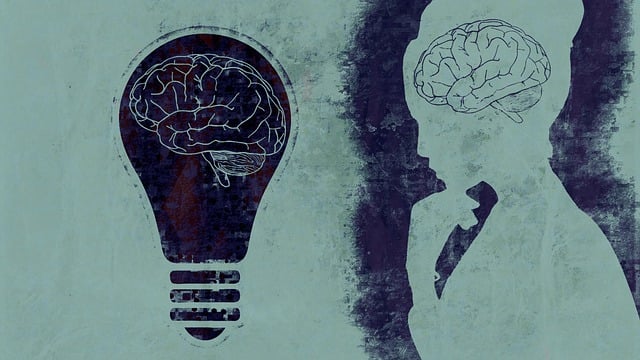Longmont Therapy for Therapists-Clinicians equips mental health professionals with essential crisis intervention skills, focusing on early depression prevention and mood management. They emphasize active listening, empathy, goal-setting, and self-care to build trust and equip individuals with effective coping strategies. Through continuous training, education, and evidence-based techniques, therapists create safe spaces for healing and resilience, enhancing the quality of care provided to clients.
In today’s challenging social landscape, effective crisis intervention is a cornerstone of therapy services. This comprehensive guide, tailored for therapists and clinicians in Longmont and beyond, delves into essential strategies to navigate high-stress situations. From recognizing subtle red flags to implementing evidence-based techniques, this article equips professionals with the tools needed to provide swift and supportive guidance during crises. Moreover, it highlights self-care practices to prevent burnout, ensuring practitioners can offer sustained, quality care.
- Understanding Crisis Intervention: A Cornerstone for Therapists-Clinicians
- Identifying Red Flags: Early Detection for Effective Response
- Communication Strategies: Building Rapport in High-Stress Situations
- Evidence-Based Techniques: Guided Support for Diverse Crises
- Self-Care and Burnout Prevention: Nurturing the Therapist-Clinician
Understanding Crisis Intervention: A Cornerstone for Therapists-Clinicians

Crisis intervention is a critical skill for therapists and clinicians, offering a lifeline to those in distress. It involves rapidly assessing and addressing a client’s acute mental health needs, providing immediate support, and helping them stabilize during traumatic or stressful situations. Longmont Therapy for Therapists-Clinicians offers specialized guidance on this topic, emphasizing the importance of early intervention in depression prevention and mood management.
The process often includes active listening, empathy, and goal-setting to equip individuals with coping strategies. By mastering crisis intervention techniques, professionals can effectively navigate challenging scenarios, build trust with clients, and offer valuable support during their journey towards mental well-being. This guidance is essential for ensuring that those in crisis receive the highest quality care.
Identifying Red Flags: Early Detection for Effective Response

Identifying red flags is a cornerstone of crisis intervention strategies, especially for therapists and clinicians in Longmont Therapy. Early detection plays a pivotal role in effective response during mental health crises. Professionals must be attuned to subtle changes in behavior, mood, or communication patterns that could signal distress. This may include sudden alterations in routine, increased isolation, or expressions of hopelessness—signs often overlooked but crucial for timely intervention.
The Mental Wellness Podcast Series Production highlights the importance of ongoing training and education for risk assessment among mental health professionals. By staying informed about emerging research and best practices, therapists can enhance their ability to recognize red flags across diverse populations. Moreover, building resilience through continuous learning ensures that practitioners are equipped to handle crises effectively, ultimately fostering a safer and more supportive environment for clients.
Communication Strategies: Building Rapport in High-Stress Situations

In high-stress situations, effective communication strategies are paramount for therapists and clinicians in Longmont Therapy for Therapists-Clinicians. Building rapport with clients is an art that requires empathy, active listening, and cultural sensitivity. When individuals face crises, their emotional states can be volatile, making it crucial for professionals to establish a safe and supportive environment. A simple smile, eye contact, and open body language can help reduce tension and signal understanding. Therapists should encourage clients to express their feelings and concerns, fostering an atmosphere of trust and openness. This initial connection is vital as it paves the way for more in-depth conversations and effective crisis intervention.
Conflict resolution techniques play a significant role in managing these situations. By teaching clients constructive ways to communicate their needs and address disagreements, therapists can empower them to navigate challenging conversations with confidence. Incorporating mental wellness coaching programs can further enhance this process, offering tools for self-esteem improvement and stress management. Through these strategies, professionals can guide clients towards better emotional regulation and healthier coping mechanisms.
Evidence-Based Techniques: Guided Support for Diverse Crises

In the realm of crisis intervention, evidence-based techniques offer a robust framework for therapists and clinicians to provide effective support during diverse crises. These strategies are backed by extensive research, ensuring that practitioners employ methods with proven success rates. Longmont Therapy for Therapists-Clinicians emphasizes the integration of such techniques, enabling professionals to navigate complex situations with confidence. By adopting evidence-based practices, therapists can deliver tailored guidance, fostering inner strength development in individuals grappling with various challenges.
Trauma support services and conflict resolution techniques are integral components within this approach. Therapists skilled in these areas can facilitate safe spaces for expression and healing, addressing the root causes of distress. Through structured interventions, they guide clients towards resolving conflicts and building resilience. The ultimate goal is to empower individuals to overcome crises, enhance their coping mechanisms, and cultivate a sense of control over their lives, thereby fostering long-term well-being.
Self-Care and Burnout Prevention: Nurturing the Therapist-Clinician

In the demanding field of therapy and clinic practice, self-care is an absolute necessity rather than a luxury. Therapists and clinicians often dedicate their lives to helping others, but it’s crucial to remember that they also require support and nurturing. Burnout is a real concern for mental health professionals, as long hours, emotional labor, and high-stress environments can take a significant toll. Implementing effective self-care strategies is not only beneficial for maintaining good mental health but also for enhancing the quality of care provided to clients. Longmont Therapy offers valuable resources and guidance for therapists-clinicians looking to prevent burnout, emphasizing the importance of creating a balanced lifestyle.
Regular self-reflection, boundary setting, and engaging in therapeutic activities can be powerful tools. Developing a consistent self-care routine that includes physical exercise, mindfulness practices, and sufficient sleep is essential for managing stress levels. Additionally, seeking supervision or joining peer support groups provides an outlet to process challenging cases and receive trauma support services. By prioritizing their well-being, therapists-clinicians can better serve their clients, ensuring they remain present, engaged, and equipped to handle the complexities of mental health issues.
Crisis intervention is a vital skill set for therapists and clinicians, enabling them to provide effective support during challenging situations. By understanding the fundamentals, identifying red flags early on, and employing evidence-based communication and technique strategies, professionals in Longmont therapy can navigate crises with confidence. Equally important is prioritizing self-care to prevent burnout, ensuring therapists remain equipped to assist others. This comprehensive guidance equips practitioners with the tools to make a meaningful impact, fostering healthier individuals and communities through expert crisis intervention.














